6. Good Morning Vietnam
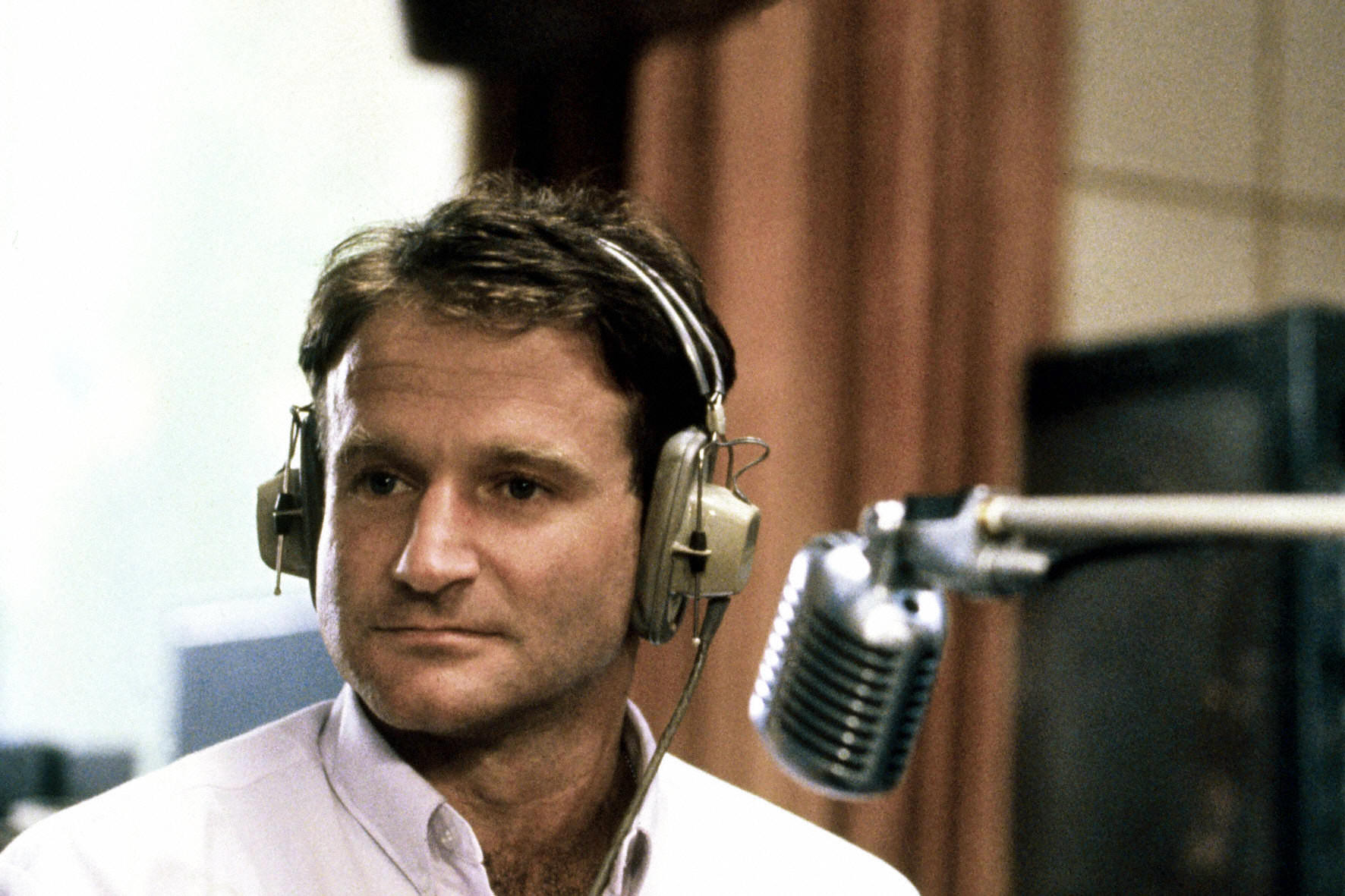
Good Morning Vietnam is a comedy where Robin Williams plays a radio DJ on Armed Forces Radio Station who becomes a beloved celebrity among the troops with his irreverent humor.
The film is an attempt by the Baby Boomer generation to find humor in the event which traumatized them the most, even if it was in a gentle, tasteful way which doesn’t make light of the war itself. In fact, this film was sold as a frothy Robin Williams comedy that has all the classic Williams tropes (a goofy rebel clashing with humorless authority figures, lots of impressions and exaggerated accents) that wouldn’t deal with the horrors of war.
Williams, however, was entering a phase of his career where he was Oscar-hungry, and he was smart enough to know that pure comedies rarely win the favor of the Academy, so the film does dive into the pain of Vietnam as it goes along.
Why the false advertising? The successful earlier films like Platoon and Apocalypse Now made it clear that America was ready for a film that dealt with the war seriously, so the fact that Touchstone Pictures felt the need to trick people into seeing this film is baffling. Were they worried that audiences wouldn’t accept Williams in a more serious role?
7. Keeping the Faith
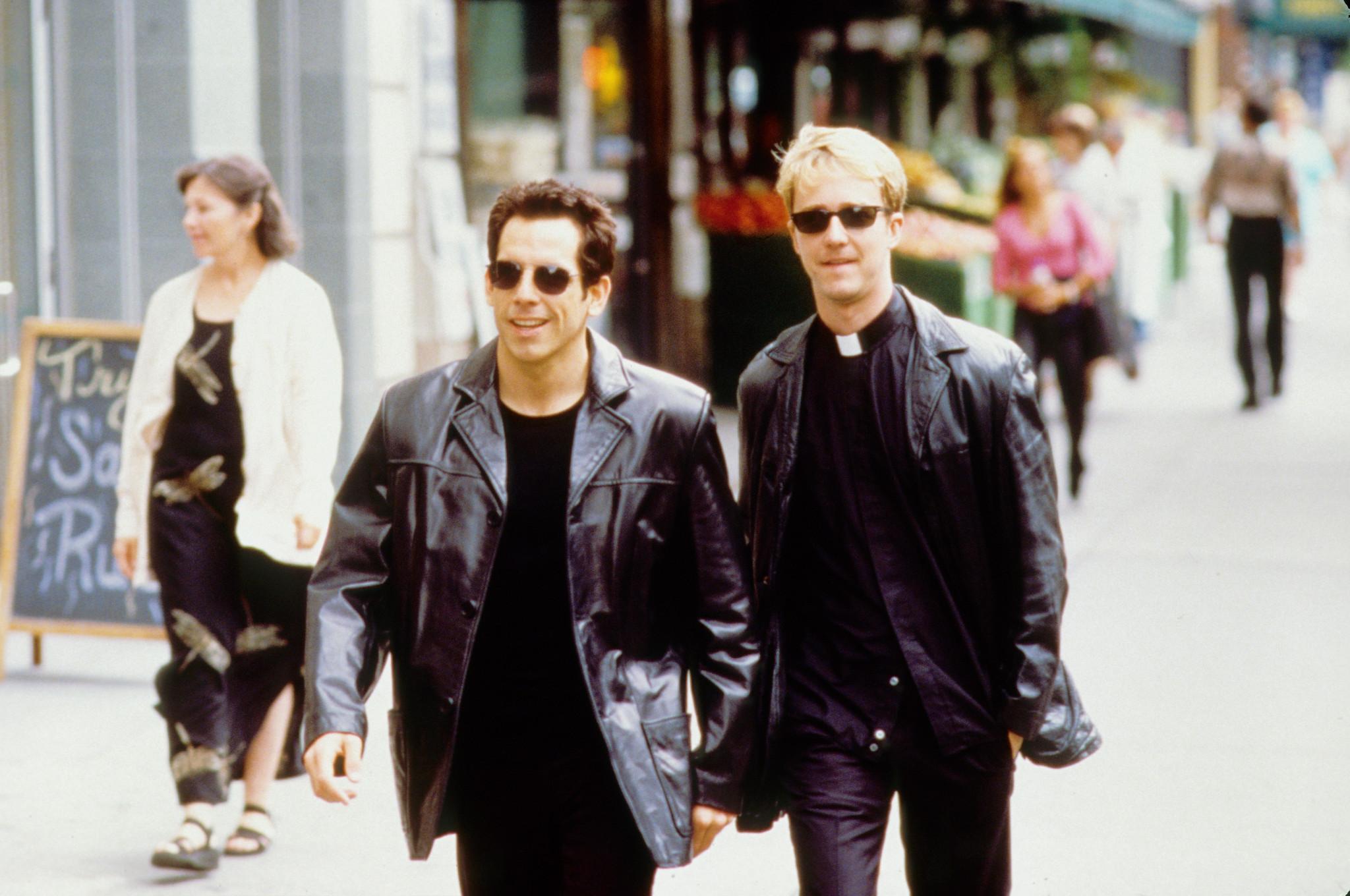
Keeping the Faith is one of the rare modern Hollywood films that doesn’t treat religious faith as scary or laughable. That’s not to say that it isn’t humorous, but the films has affection for its main characters, a priest and an Orthodox rabbi, as well as their faith traditions.
It’s a cute comedy drama whose trailer completely ignores its dramatic side because even if this film can take religion relatively seriously, the firm that marketed it apparently cannot. Why market this film to an audience that doesn’t take faith seriously when it could have resonated with a religious audience which is starving for whatever tiny scraps that Hollywood occasionally throws at them? A mere two years prior DreamWorks had a sizable hit with The Prince of Egypt, a film adaptation of the Book of Exodus.
Meanwhile the perceived anti-Christian themes of Disney’s Hunchback caused it to underperform at the box office, thanks in part to a successful boycott of the film spearheaded by the Southern Baptist Convention. Either the film industry is unaware of a market that they could pander to (as if) or they would rather lose money than give religious folks a modicum of cultural capital.
8. The Rocky Horror Picture Show
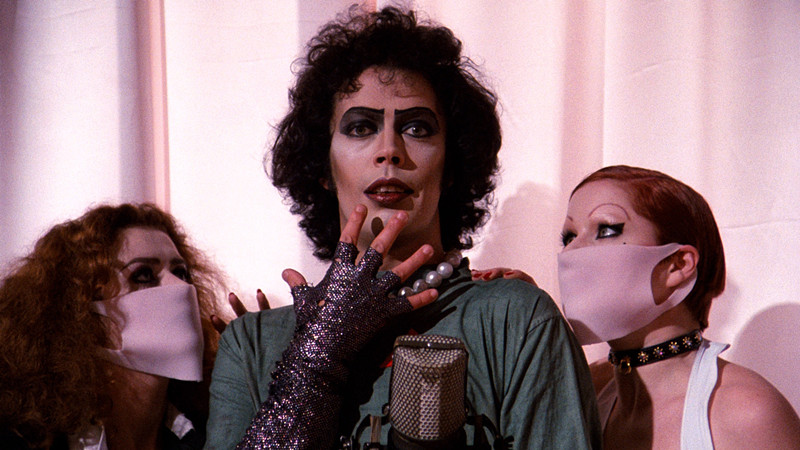
As a movie that frames B-horror and Monty Python sensibilities through the lens for Little Richard, The Rocky Horror Picture Show was always going to be a tough sell. It’s too sexual to be embraced by grandmothers who loved The Sound of Music and Mary Poppins, but it’s too goofy for the sexually liberated cineastes who tended to go for highbrow fare like Last Tango in Paris and Cabaret.
Rather than trying to appeal to musical audiences or swinging arthouse audiences, The Rocky Horror Picture Show was sold on its bizarre nature. Someone should have realized that few people will go to a film simply because it is strange. Even the biggest fans of Federico Fellini or David Lynch enjoy their oeuvres for more reasons than an attraction to the odd.
The poster for the film is also inexplicable. It shows a pair of lips next to the words “a different set of jaws.” Lips are not a selling point. Also, what on earth does Dr. Frank-N-Further have to do with Jaws? The Rocky Horror Picture Show was initially ignored before becoming an underground hit and eventually a mainstream Halloween favorite. With proper marketing, it could have cut to the chase.
9. Annihilation
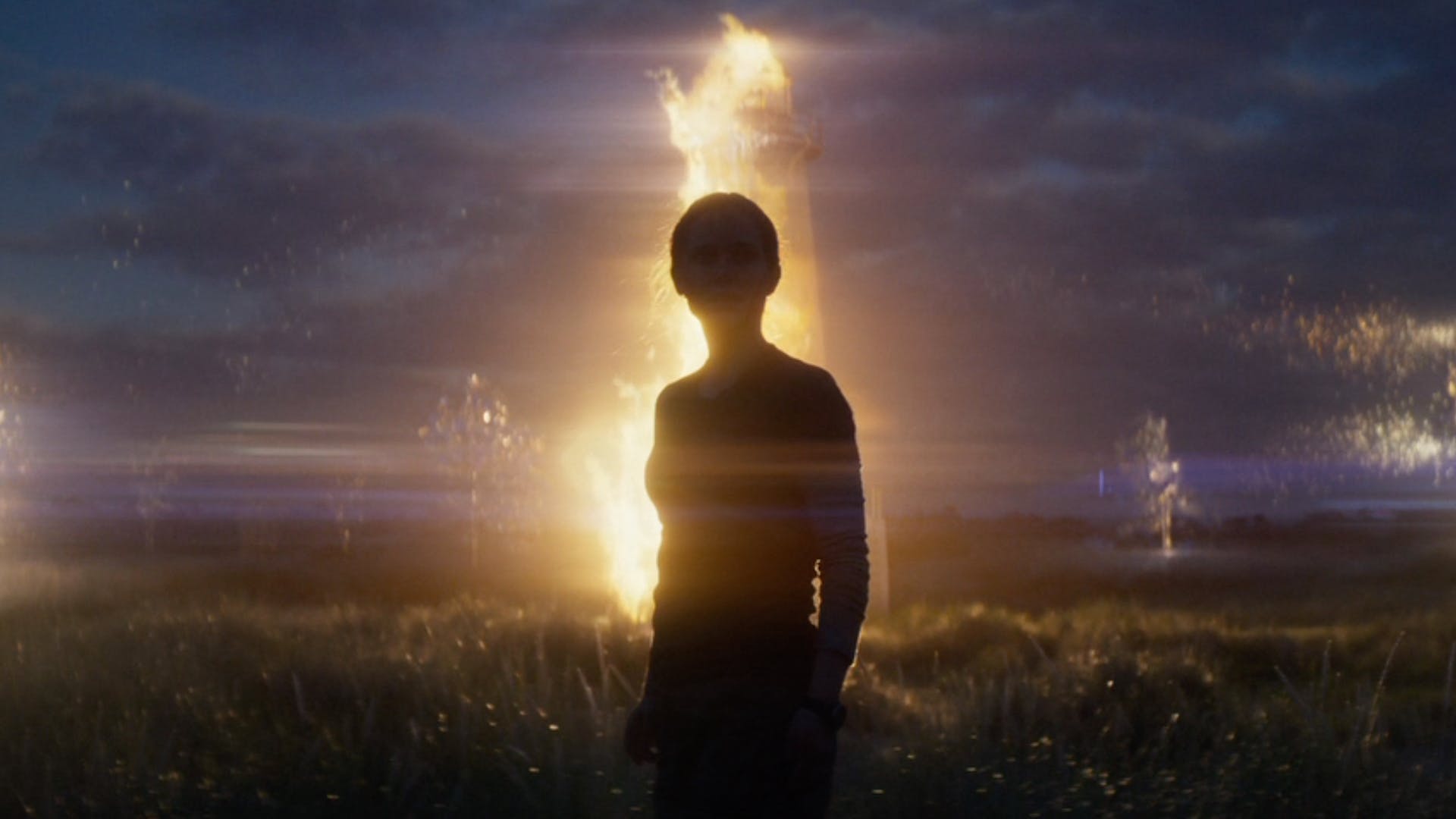
When it comes to film advertising, honesty really is the best policy. If marketing presents a film accurately it will find it has a good shot at finding its audience. If a film is misleadingly marketed, people who see it won’t like having their expectations ignored and give the film damming word of mouth. Case in point – Annihilation.
The film is a cerebral science fiction film with thriller elements that feels like the beautiful long-lost love child of H. P. Lovecraft’s’ “The Color Out of Space” and 2001: A Space Odyssey. Because of a disturbing lack of faith in their customers, Hollywood decided to fool people into thinking that it was a big, dumb monster movie.
This film could have been honestly sold as the rare prestige science fiction film given its pedigree – it was directed and written by Alex Garland, the mind behind the acclaimed sci-fi feature Ex-Machina and adapted from a novel by Jeff VanderMeer, a longtime critical darling. But no, genre fiction is lesser, so the industry had to sell it to Godzilla fans rather than the arthouse fans it was made for.
10. Grindhouse
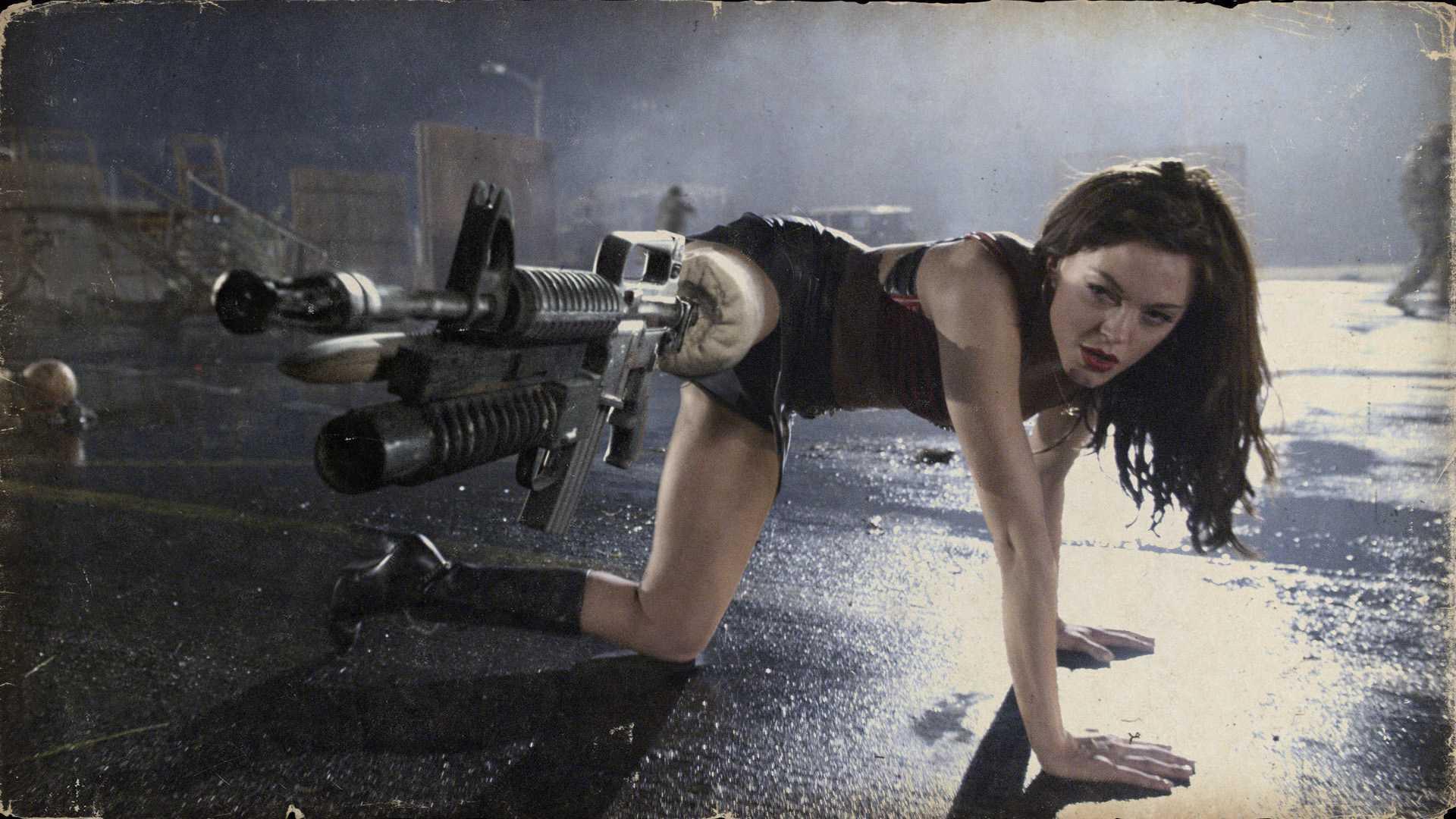
Nostalgia is the life blood of the culture industry. Grindhouse caters to a nostalgia that few besides Quentin Tarantino have. Few would say that Grindhouse is Quentin Tarantino’s best film but it’s certainly one of his most ambitious. The two movies one ticket package deal was an attempt by him and Robert Rodriguez to resurrect the B-horror double feature.
For the sort of people who enjoy the offerings of Crown International Pictures or Samuel Z. Arkoff, it was a godsend. To most others, it held little appeal. The truth is that marketing these movies as B-movie throwbacks was misleading – they each have more in common with conventional high budget American movies than they do with The Hills Have Eyes or I Spit on Your Grave.
Tarantino and Rodriguez include as many B-Movie homages as they like in the film, but they never feel like actual drive-in flicks. The marketing for the film publicized Tarantino’s name because he has a dedicated fan base and Rodriguez involvement so he didn’t feel left out. If a single person went to see Grindhouse because they enjoyed Rodriguez’s Spy Kids films, they must be a truly unique personality.